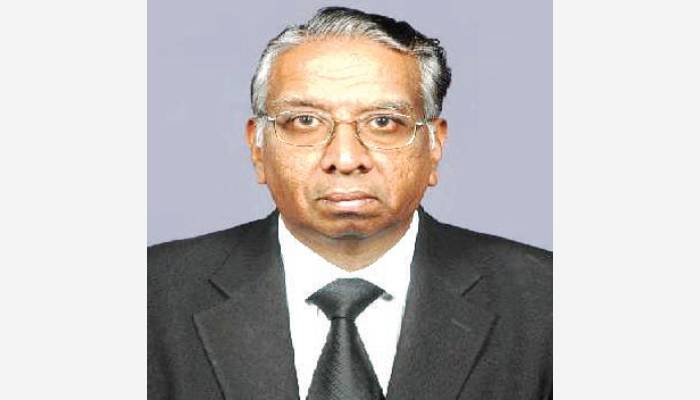
or

Anti-Counterfeiting Trade Agreement (ACTA) may establish new benchmarks in international standards on IP enforcement and if India wants to emerge a favourable FDI destination, it would have to improve its own IP enforcement infrastructure.
The official unveiling of the Anti-Counterfeiting Trade Agreement (ACTA) in 2010 triggered a wave of concern for developing countries, especially in respect of ACTA’s emphasis on building a stronger international framework in the form of a TRIPs plus enforcement against trademark counterfeiting. ACTA has been negotiated by Australia, Canada, the EU and its 27 Member States, Japan, South Korea, Mexico, Morocco, New Zealand, Singapore, Switzerland and the United States. All countries have signed ACTA except for Switzerland and Mexico. The legal framework of ACTA embodies civil and criminal enforcement, border measures as well as enforcement issues related to the digital environment.
The continued fear of developing countries again surfaced recently in the recent meeting of the WTO TRIPS Council which took place in Geneva on 28 and 29 February 2012. India opposed the new agreement on familiar grounds of access to medicines. In addition, following the seizure of generic pharmaceuticals transiting through Europe by European customs authorities, India seems to be especially concerned, realizing that the seizure of in transit generics is more than just an isolated European practice and represents an emerging internationalstandard for the enforcement of IP rights.
The Indian delegation has been consistently raising their concerns that plurilateral agreement like ACTA having TRIPS plus provisions can undermine the flexibilities and disturb the delicate balance provided by the TRIPS Agreement. One of the major concerns is that it may adversely affect access to health in the developing countries. However in view of the unprecedented economic and financial crisis in the developed world and the austerity measures taken by many countries, adversely affecting their health budgets, the issue of access to health is not only limited to the developing countries but has begun to affect even the developed world. Statements made by ACTA signatories and reassurances that ACTA will not affect access to medicines in developing countries have not managed to assuage protests against ACTA. It is being apprehended that once ACTA comes into force, the ACTA border measures which arecurrently limited to some parts of Europe could get extended to the territories of ACTA signatories. It is feared that this may have a stifling effect on the supply of generic medicines to the needy countries. This could happen in at least two ways (i) generic suppliers may have to re-route their goods making the shipping costs dearer; (ii) making it costlier through delays, legal and demurrage cost on account of border seizures of suspected drugs violating TMs in transit port.
It is being argued that ACTA is not just against ‘counterfeiting’, as it interpreted under the TRIPS agreement as well as being stated in the definition under Article 5 of ACTA. Even while admitting that the term ‘counterfeit’ applies to trademarks, the agreement in fact extends it to all forms of IPRs as covered under the TRIPS Agreement, including data, copyrights, patents, etc. It would be inappropriate to claim that patents are not the subject matter of the Agreement. In fact, the parties have been given the option to keep patents and undisclosed information outside the scope of civil enforcement. Thus, despite agreeing to keep patents and undisclosed information outside the scope of Border Measures the option on civil enforcement on patents remains in the agreement. Such a provision signals a marked increase over the TRIPS Agreement which is limited to counterfeit trademark and pirated copyright goods only.

Anti-Counterfeiting Trade Agreement (ACTA) is a case of policy laundering by the developed countries. Besides, ACTA would limit the freedom of countries such as India to determine their own medical choices in terms of the availability of cheaper generic drugs. But It will happen only when India signs and become a signatory and ratify. India can fight back such tactics of the developed countries by not signing such treaty which is detrimental to its development and industrial progress. India is now having excellent potential as regards manufacture of generic medicines and also efficient pharmaceutical industries. Further India is having very good policy on environmental aspects and green technology revolution. Our freedom in India in every sphere will be at stake.
It is also being argued that since ACTA goes much beyond Article 51 of the TRIPS Agreement it includes all forms of Intellectual Property Rights. However pursuant to the strong criticism of these provisions during the negotiations of ACTA and several incidents of generic drugs getting seized in transit at the European ports, the ACTA signatories finally decided to exempt patents and undisclosed test data from Border Measures. While these exclusions are viewed as commendable, the imposition of Border Measures over other forms of IPRs can still affect the trade in goods that transit through the ports of ACTA Members. India and other countries are consistently raising their concerns over the seizure of generic medicines in transitat the European ports when there was in fact no IP violation. It may be recalled that in some incidents reported, consignments were detained not for patent violation but were suspected of trade mark violation. ACTA’s expansion of border measures far beyond “counterfeit trademark or pirated copyright goods” is being viewed as authorizing seizures of suspected “confusingly similar” trademarks. One has to be wary of the fact that deciding a trademark dispute requires a comprehensive legal analysis, which is much less straightforward than determining whether goods are counterfeit. Such an assessmentis usually performed by courts or trademark offices, which have the necessary tools such as legal expertise, case law, and experience to rely upon. Burdening the customs officers with this task is being viewed as being likely to lead to a considerable increase in seizures and temporary detentions based on right holder allegations that transiting products are confusingly similar. This would lead to considerable barriers of legitimate trade. It is also being argued that Article 16, increase the border seizure requirements while reducing safeguards. It mandates ex officio seizures, extends the scope of requirements to include exports, and makes no mention of a prima facie evidence requirement or limited duration of the suspension pending a determination on the merits. This goes much beyond the TRIPS provision of Article 58 that imposesrestrictions on the ability of border officials to take ex officio action to halt goods at the border without any complaint from a rights holder. It is feared that rights holders could also [mis]use this provision to launch harassing actions against legitimate competitors.

If you see all the latest draconian legislations of developed countries , they are extra-teritorial in their nature, for example, FCPA,UK Bribery Act etc, so nothing new in this one.
India can only fight back these efforts of the developed world through strategic backed with minded countries and lobbying for causes at international fora.
Altering the territoriality of IPRs significantly, the impact of the seizures at transit ports undermines the sovereignty of the importing nation in deciding to maintain the nature of IP regime in view of its own circumstances. It is feared that ACTA could be invoked by competing manufacturers to apply the IP laws of transit ports to the markets of the importing nations. This would also alter the basic fundamental of IPRs being territorial rights. As an emerging power and certainly as a leading developing nation India also has a responsibility to discharge in global trade diplomacy.
While the ongoing concerns of policy makers that ACTA may establish new benchmarks in international standards on IP enforcement are valid, however, if India is to emerge as an IP favourable environment to attract FDI it would have to any way pull up its own infrastructure in context of IP enforcement. While it may be true that the standards being mooted through ACTA may become the bedrock of future negotiations between the developed and developing countries in the various RTA negotiations currently under way, emergence of ACTA may have silver lining in the form of an international consensus on enforcement and border measures. These if backed up by adequate infrastructure may go a long way in curbing the menace of counterfeiting and smuggling across the world.
Meenu Chandra is an IP lawyer and currently acting as Head of Committee on Anti-Smuggling and Counterfeiting Activities Destroying the Economy (CASCADE),a FICCI Initiative. The views expressed in this artcle are solely of the author and does not represent the view of FICCI and its members. Author would like to acknowledge the critical comments by Dr. M.V. Chandra, Adyopant Legal Services towards this note.

Lex Witness Bureau

Lex Witness Bureau

For over 10 years, since its inception in 2009 as a monthly, Lex Witness has become India’s most credible platform for the legal luminaries to opine, comment and share their views. more...
Connect Us:


The Grand Masters - A Corporate Counsel Legal Best Practices Summit Series
www.grandmasters.in | 8 Years & Counting
The Real Estate & Construction Legal Summit
www.rcls.in | 8 Years & Counting
The Information Technology Legal Summit
www.itlegalsummit.com | 8 Years & Counting
The Banking & Finance Legal Summit
www.bfls.in | 8 Years & Counting
The Media, Advertising and Entertainment Legal Summit
www.maels.in | 8 Years & Counting
The Pharma Legal & Compliance Summit
www.plcs.co.in | 8 Years & Counting
We at Lex Witness strategically assist firms in reaching out to the relevant audience sets through various knowledge sharing initiatives. Here are some more info decks for you to know us better.
Copyright © 2020 Lex Witness - India's 1st Magazine on Legal & Corporate Affairs Rights of Admission Reserved